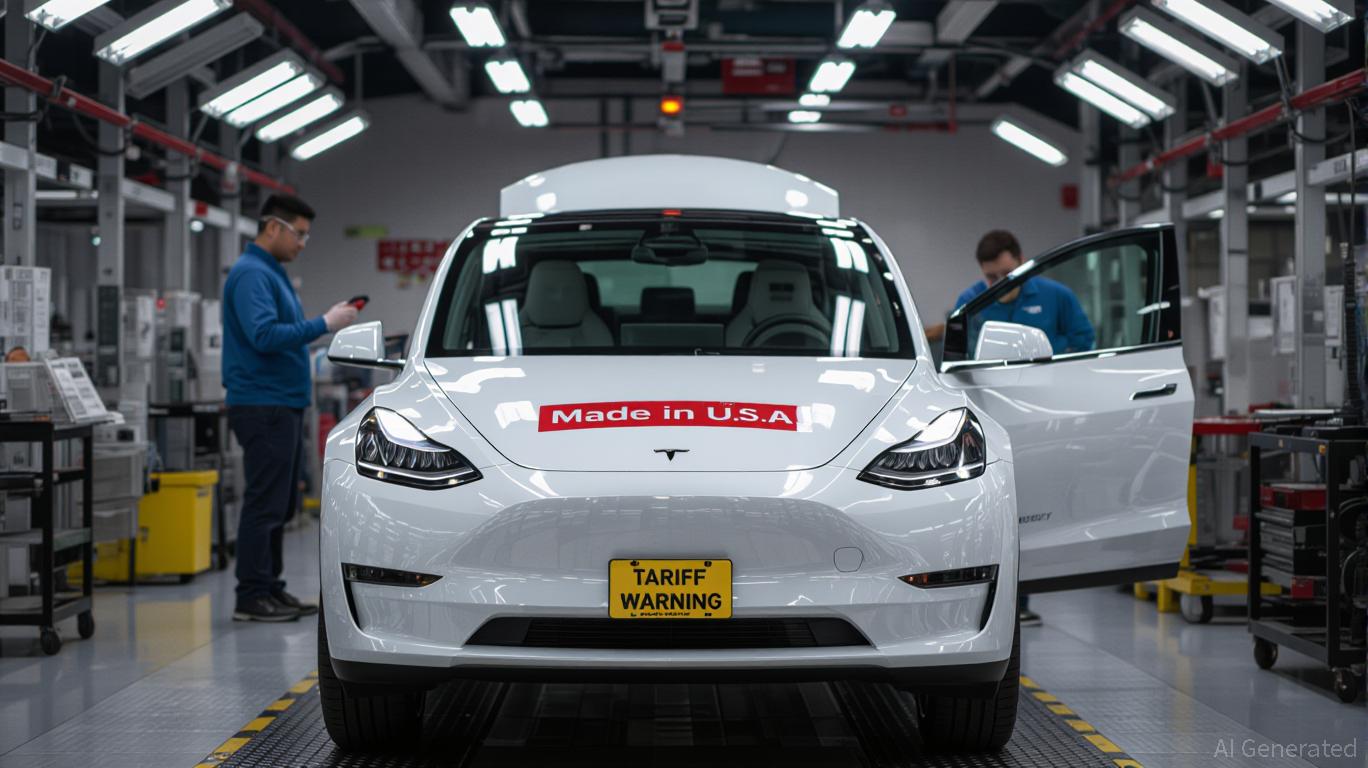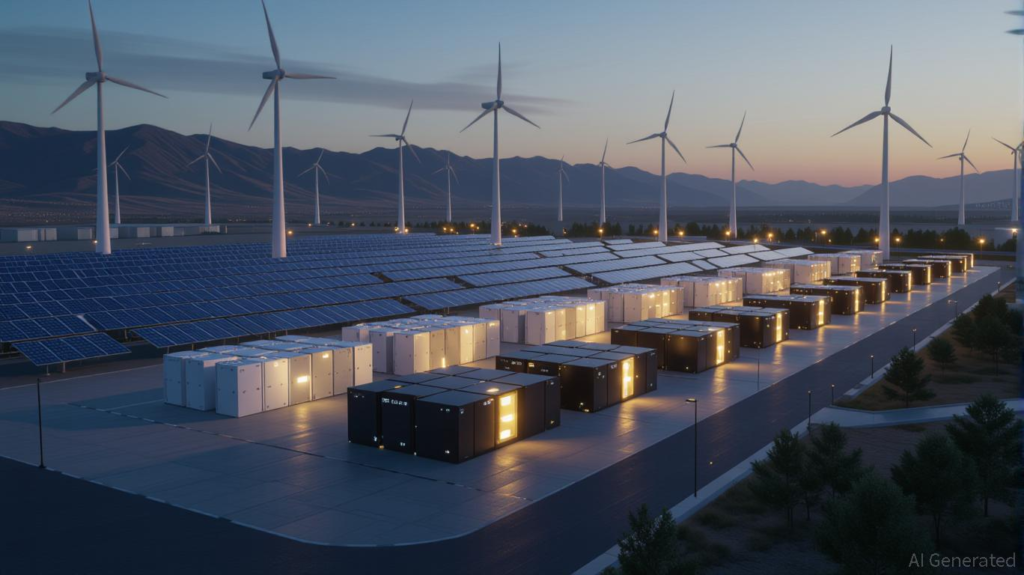The AI and electric vehicle (EV) sectors have long been the twin engines of tech market euphoria, but Q2 2025 earnings reports reveal a stark divergence in their trajectories. Alphabet’s robust growth in AI and cloud computing contrasts sharply with Tesla’s struggles in the EV market, while Trump-era trade policies add a layer of geopolitical volatility to both. Investors now face a critical question: Are the current market highs for these sectors sustainable, or are they built on fragile foundations of speculative optimism?
Alphabet: AI’s Golden Child
Alphabet’s Q2 2025 results underscore its dominance in AI-driven innovation. Revenue rose 14% year-over-year to $96.4 billion, with Google Cloud surging 32% to $13.6 billion. The company’s AI tools, such as Gemini (450 million monthly users) and AI Overviews (2 billion users), are not just enhancing user engagement but also monetizing through cloud infrastructure and enterprise partnerships.
Alphabet’s forward P/S ratio of 6.43X may seem lofty, but its strategic investments justify scrutiny. The company increased 2025 capital expenditures to $85 billion, driven by AI infrastructure demand. Sundar Pichai’s emphasis on AI integration across search, YouTube, and cloud services reflects a long-term vision that could sustain growth. However, Trump’s tariffs on semiconductors and copper—affecting data center costs—pose a risk. The EU’s retaliatory tariffs on U.S. goods could further pressure European ad revenue. Investors must weigh Alphabet’s AI monetization potential against these macroeconomic headwinds.
Tesla: EV Market Struggles and AI Hopes
Tesla’s Q2 2025 earnings tell a tale of waning automotive dominance and unproven AI ambition. Automotive revenue fell 16% to $16.7 billion, with deliveries dropping 14% to 384,000 units. Regulatory credit revenue plummeted to $439 million, and the company’s trailing P/E of 189.05 hinges on the success of robotaxi and Optimus robots.
While Musk touts Austin’s robotaxi tests as a “future cash cow,” the reality is more complex. Tesla’s core automotive business faces pricing pressures, supply chain bottlenecks, and the expiration of U.S. EV tax credits by September 2025. Trump’s 145% tariffs on Chinese EV components have driven battery costs up by over 160%, squeezing margins. The company’s delayed Model 2 and competition from Chinese automakers like BYD (which surpassed Tesla in global EV sales in Q4 2024) further cloud its prospects.
Trump Trade Deals: A Double-Edged Sword
The Trump administration’s reciprocal tariffs, averaging 26% on key partners, have created a trade war-like environment. For Alphabet, this means higher costs for semiconductors and copper, critical for AI infrastructure. For Tesla, tariffs on Chinese battery components and the EU’s retaliatory 30% tariffs on U.S. goods threaten to erode its already thin margins. 
The administration’s anti-EV policies—eliminating the $7,500 federal tax credit and easing fuel economy standards—add to the uncertainty. While Tesla’s FSD software revenue grew 35% quarter-over-quarter, its near-term profitability remains in question. Meanwhile, Alphabet’s cloud business, less exposed to physical trade, is better positioned to weather the storm.
Investment Implications: Balancing AI’s Promise with Macro Risks
The sustainability of AI and EV market highs hinges on two factors: the pace of AI monetization and the resolution of trade tensions. Alphabet’s premium valuation is justified if its cloud and AI infrastructure dominate the $1.2 trillion AI market. However, investors should monitor the EU’s retaliatory measures and the U.S. dollar’s strength, which could pressure European ad revenue.
For Tesla, the focus must shift from speculative AI bets to tangible automotive turnaround. The company’s robotaxi ambitions require not just technological execution but also regulatory approval and consumer adoption. Given its stretched valuation, a diversified approach—hedging with short-term options or diversifying into AI-driven services—may mitigate downside risks.
Conclusion: A Divided Tech Landscape
The AI and EV sectors are no longer monoliths. Alphabet’s AI-led growth and Tesla’s EV struggles highlight the sector’s bifurcation. While Trump’s tariffs have exacerbated these divides, the long-term potential of AI remains compelling. Investors should prioritize companies with defensible cash flows and lower trade exposure, while maintaining a cautious stance on EVs until supply chain resilience and policy clarity emerge. In this volatile landscape, adaptability—not just in technology but in portfolio strategy—will define success.






